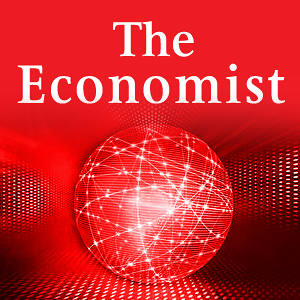Another Ridiculous Article From The Economist: Doctor Shortage Is A Win For Patients?
 I don’t read The Economist frequently enough to be sure that I dislike its entire staff of writers, but I have been repeatedly disappointed by its health coverage. In this latest article, “Squeezing Out The Doctor” the writers describe the increased healthcare needs of an aging western civilization, combined with a relative shortage of physicians to care for seniors. The conclusion? This is a “win” for patients.
I don’t read The Economist frequently enough to be sure that I dislike its entire staff of writers, but I have been repeatedly disappointed by its health coverage. In this latest article, “Squeezing Out The Doctor” the writers describe the increased healthcare needs of an aging western civilization, combined with a relative shortage of physicians to care for seniors. The conclusion? This is a “win” for patients.
Now, in case you find that conclusion as irrational as I did, let me summarize how they arrived there. The argument goes something like this: doctors have been unfairly controlling the practice of medicine for the past century, and now with the oncoming flood of patient need (and relative MD shortage), they won’t have time to do everything they have in the past. Physicians will therefore be forced to narrow their scope and outsource many of their current tasks to nurses and support staff. This is a win for patients because they will have shorter wait times for care and lower healthcare costs with the same care quality because most of what doctors do can be replicated by ancillary staff. At last we will be able to remove the self-important, over-educated, control freak physicians from the delivery of healthcare!
Oh, here’s another great idea: why don’t we improve our school systems by squeezing out the teachers? Who needs teachers when mature students could train others in the same subject matter? Most of what teachers do is just baby sitting, right? We could easily outsource that to daycare centers or teens with a little baby sitting experience. The few teachers we retain should be reserved for only the most difficult cases: severe learning disabilities. Just think of the cost savings in teacher salaries! Imagine the improved access to schools if we didn’t have to adhere to some arbitrary teacher to student ratio. What a win for students. The only possible downside is that teachers may lose some of their current social standing, but so what?
The oncoming physician shortage will not bring the glorious improvements in healthcare delivery touted by The Economist. More likely it will create a two-tiered system whereby the poor and underinsured will get a substandard level of care. If you think that only doctors balk at long hours for low pay, try pitching that deal to nurses. They are just as savvy as physicians about personal economics. Having them take over primary care under the current (or worsening conditions) will burn them out just as quickly and nurses will specialize or quit nursing in droves. There is no magical, “let’s just get someone else to do it for less” model in healthcare when we’re already scraping the bottom of the barrel in terms of ROI for providers of any stripe.
Physician scarcity can be ameliorated by setting doctors free to spend more of their time in patient care, and less of it on distractions (such as excessive documentation for coding and billing purposes). But the solution is not necessarily outsourcing that work to someone else. It’s killing it all together. Radical idea? My practice is doing that now and growing a thriving business to boot.
Primary care doesn’t have to be expensive. Most patients need less than a full hour of a physician’s time per year, an annual cost of about $350. In my practice, we bill for our time and we spend it however it makes best sense for the patient – via phone, email, office visit, or house call. It’s in our interest to see as many patients as possible, and therefore we are increasing access to services. Office wait times are non-existent because many issues can be handled via phone (patients are not required to come to the office for every and any request for the sake of billing).
What’s the catch? We don’t accept insurance. Patients can submit claims to their carrier for reimbursement for our out-of-network services, but we have opted out of public and private insurance plans so that we can spend our time with patients instead of coding, billing, and being beholden to third party documentation requirements and regulations. This system works marvelously for any patient open-minded enough to see that a high deductible health insurance plan (for catastrophic coverage only) saves them thousands per year in premiums, while their primary care “out of pocket” will cost a few hundred or less. The math works for all. Access is improved, costs decrease, quality is maintained.
Now that’s a true win for patients.












